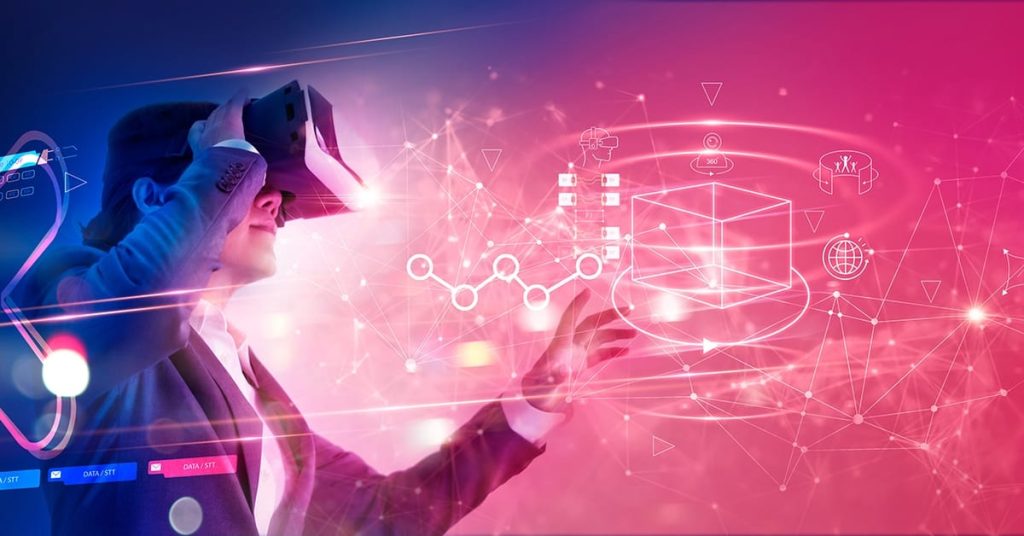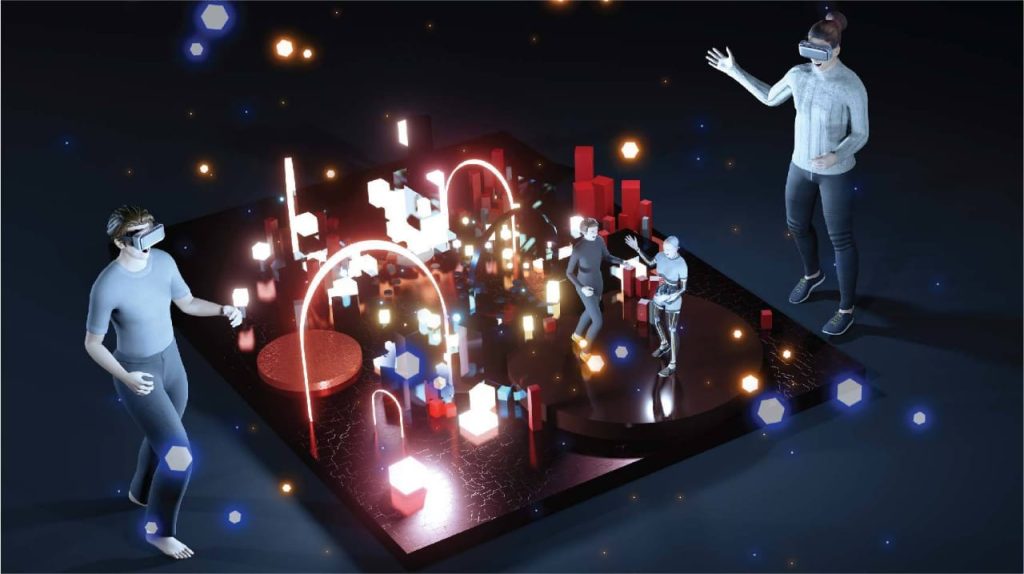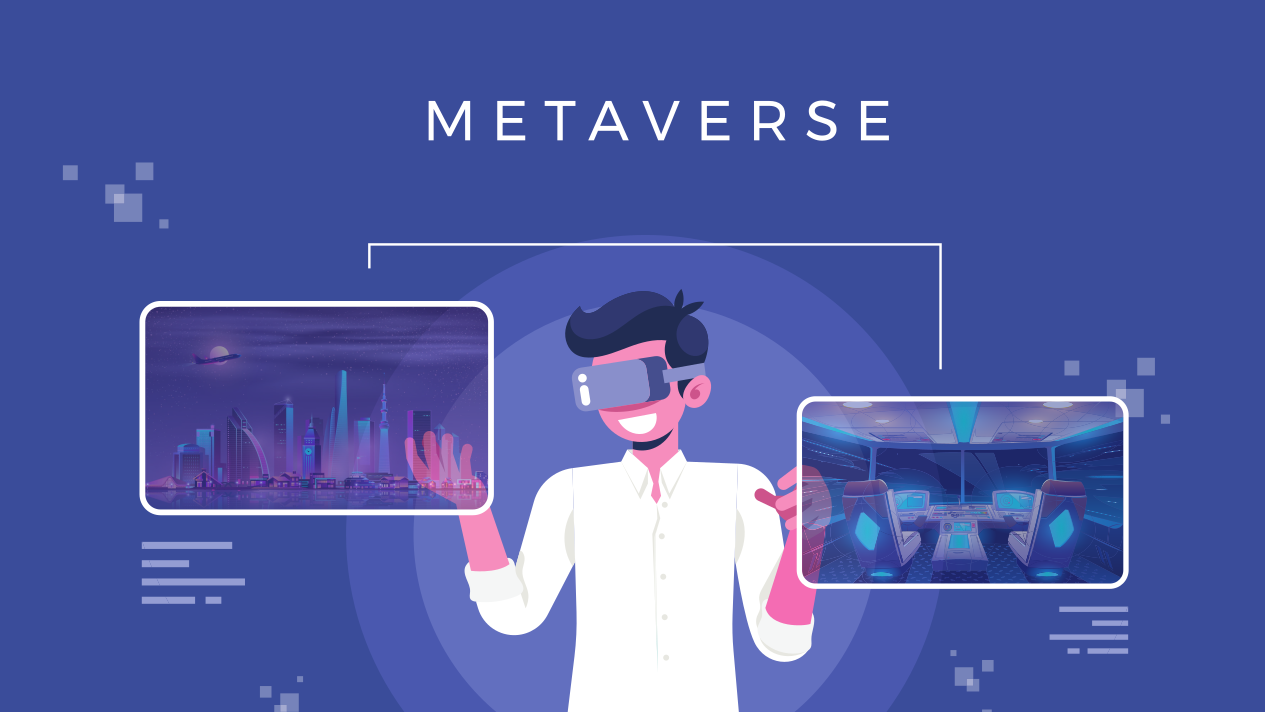The term ‘Metaverse’ was first used by Neil Stevenson in a science fiction novel called Snow Crash. Metaverse mainly consists of augmented reality (AR) and virtual reality (VR). With its feature of sharing online space along with combining physical space, this will become an integral part of our lives in the next 10-20 years. Metaverse has various impacts in different fields of life such as business, healthcare systems, education systems etc.

In this blog we will discuss the impacts of metaverse on E-learning
- Improved Visuals in class
With the video calling apps, the teachers are unable to portray objects accurately with them. Teachers can efficiently use technology to show their students these illustrations. For example if a teacher wants to show a certain object, he/she can use applications to show 3D images. This will help students in better understanding of subjects.
- Better e-learning with Metaverse
Metaverses can give students access to a virtual environment where they can move around, take notes, and interact with other students. Students now prefer using their smartphone for learning rather than a book. Children can change their appearance through applications,they can also choose from variety of alternatives for clothing, haircuts, and expressions.
- More Parent-Teacher interaction
Parents can view the performance of children in schools with the help of metaverse. Parents can also view their children in class and see the mode of teaching. Parents can also plan strategies with teachers for regular meetings regarding child progress etc.
- Enhanced learning Resources
Books can be used along with Virtual Reality allowing students to fully engage themselves in the content i.e listen to the text and view diagrams in 3D. Virtual reality also plays animated movies for historical topics to the pupils for improved learning. Combining exams with the metaverse applications can make them more impactful. With influencing learning resources in the the metaverse, eLearning sector can be improved and become more realistic.

Learning is transitioning from Physical classes to online mode thanks to e Learning apps. These apps integrate both VR and AR technology and allow you to get a little bit closer to the metaverse’s structure. It will take 10-20 years to transform the system into a metaverse.

purchase androxal cost at walmart
buy cheap androxal no prescription online
Order rifaximin online without a perscription
get rifaximin buy virginia
cheap staxyn australia online generic
buy staxyn without rx online
commander kamagra en ligne canada
est kamagra un médicament d’ordonnance
cheapest buy enclomiphene cheap next day delivery
cheap enclomiphene american pharmacy
order dutasteride generic next day delivery
cheap dutasteride lowest price
order flexeril cyclobenzaprine usa mastercard
cheap flexeril cyclobenzaprine cheap canadian pharmacy
get free sample of gabapentin
lowest cost generic gabapentin
discount fildena canada fast shipping
cash on delivery online prescriptions fildena
cod itraconazole overnight saturday no prescription
discount itraconazole generic alternatives
order avodart buy mastercard
discount avodart usa where to buy
buy xifaxan purchase online uk
get xifaxan purchase from canada
kamagra australský legální dovoz
kamagra na dobírku